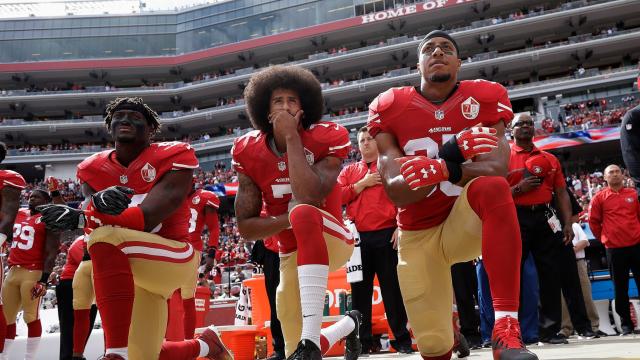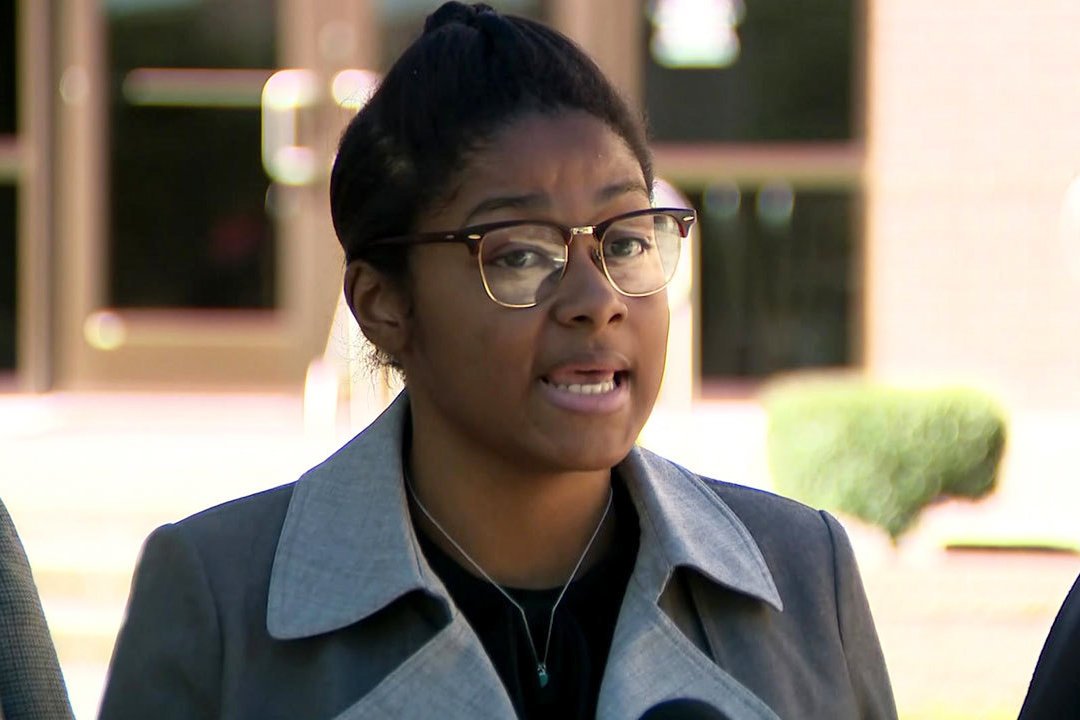
Last month, a high school student in Houston, Texas, sued her school district because school officials suspended her for refusing to stand for the Pledge of Allegiance. The principal of Windfern High School told 17-year-old India Landry that she could either stand for the Pledge or stay home. Landry later told the local the news station KHOU that she doesn’t think “the flag is what it says it’s for, for liberty and justice and all that.” In response, her family filed a civil lawsuit against the Cypress-Fairbanks Independent School District and Landry's high school principal.
The debate over kneeling in the NFL during the National Anthem has spread to other institutions. But expelling students for sitting during the Pledge is in clear violation of the students' civil liberties. Despite 70 years of legal precedents working in students' favor, why do these cases keep happening?
One unfortunate reason for this déjà vu stems from educators’ and students’ lack of knowledge about student rights. George Washington University law professor Catherine Ross documented in her recent book, "Lessons in Censorship," that educational training rarely informs educators about free speech. Even law schools that teach education law will rarely cover the topic. In this sense, many teachers and administrations in the nation’s schools are oblivious to the fact that students are entitled to constitutional rights to free speech so long as their actions do not disrupt regular school operations.
Even more understated, Landry’s case is reminiscent of long-forgotten controversies involving teenagers and the Pledge of Allegiance that occurred in the 1960s and 70s. Similar to Landry, junior high and high school students of that era asked for the right to sit silently during the Pledge because they objected to the phrase “liberty and justice for all.” These attitudes did not emerge in a vacuum. Similar to today’s protests coinciding with Black Lives Matter, the students a generation ago were in the midst of the anti-war, Black Power and women’s liberation movements.
Students' clear position back then was that they could not, in good conscience, state a phrase they believed was hypocritical. To them, it belied the reality of discrimination faced by minority groups, poor people and women. Their actions thrust the Pledge into the national spotlight and led to several short-lived initiatives to change the wording to make the last phrase more aspirational.
There are no records showing how many times students sat as a form of protest because most incidents never made headlines. The several times when school officials suspended students for sitting during the Pledge, students filed lawsuits. The pupils prevailed, but even federal judges who sided with the students admitted that they privately opposed the students’ position. Under law, however, they recognized that the students were protected by the First Amendment.
In the midst of these controversies, students and government officials led national campaigns to amend the Pledge's ending. One initiative created by a high school student, with support from her school principal and U.S. Sen. Jacob Javits, of New York, sought to reword “with liberty and justice for all” to “seeking liberty and justice for all.” Other initiatives were pushed by an article in Look magazine, former U.S. Education Commissioner James Allen, and attendees of the 1971 White House Conference on Children.
School officials today are no less ignorant about the law than school officials of the past. Federal courts repeatedly reaffirmed the notion of student rights during the 1960s and 70s, yet school administrators narrowly interpreted the law to justify their opposition. In a 2012 interview I did with Ira Glasser, the former executive director of the American Civil Liberties Union, Glasser told me that school officials constantly tried to bend the law.
“I actually had a case once in upstate New York where a principal suspended a kid for wearing a green armband, some kind of environmental thing,” he recalled. Glasser informed the principal about Tinker v. Des Moines, a 1969 Supreme Court case that established student rights after school officials in Des Moines, Iowa, suspended students for wearing black armbands to protest the Vietnam War. Glasser continued, “The principal actually said to me that this case was different. I said, 'Why?' and he said, ‘Well, those are black armbands.’”
Luckily, non-education officials have noted that students are entitled to sit during the Pledge. Yet, all of these authors have overlooked the 60s and 70s, which have become more relevant to Landry’s case because it concerns a political objection rather than a religious one.
If history serves as a guide, Landry will win her Houston case decisively. The school district will have spent unnecessary tax dollars to uphold a decision that violated the student’s constitutional rights. If educators were informed about the history of such cases, this controversy could have been avoided. At the core of school officials’ objection is not that the student is disrupting school operations, but rather it's school officials’ determination to have students do as they say.
A student at Klein Oak High School outside Houston who chose to withhold her name spoke to reporters last Wednesday about her protests of the Pledge of Allegiance and the school’s response.CreditKPRC-TV
3 WAYS TO SHOW YOUR SUPPORT
- Log in to post comments












